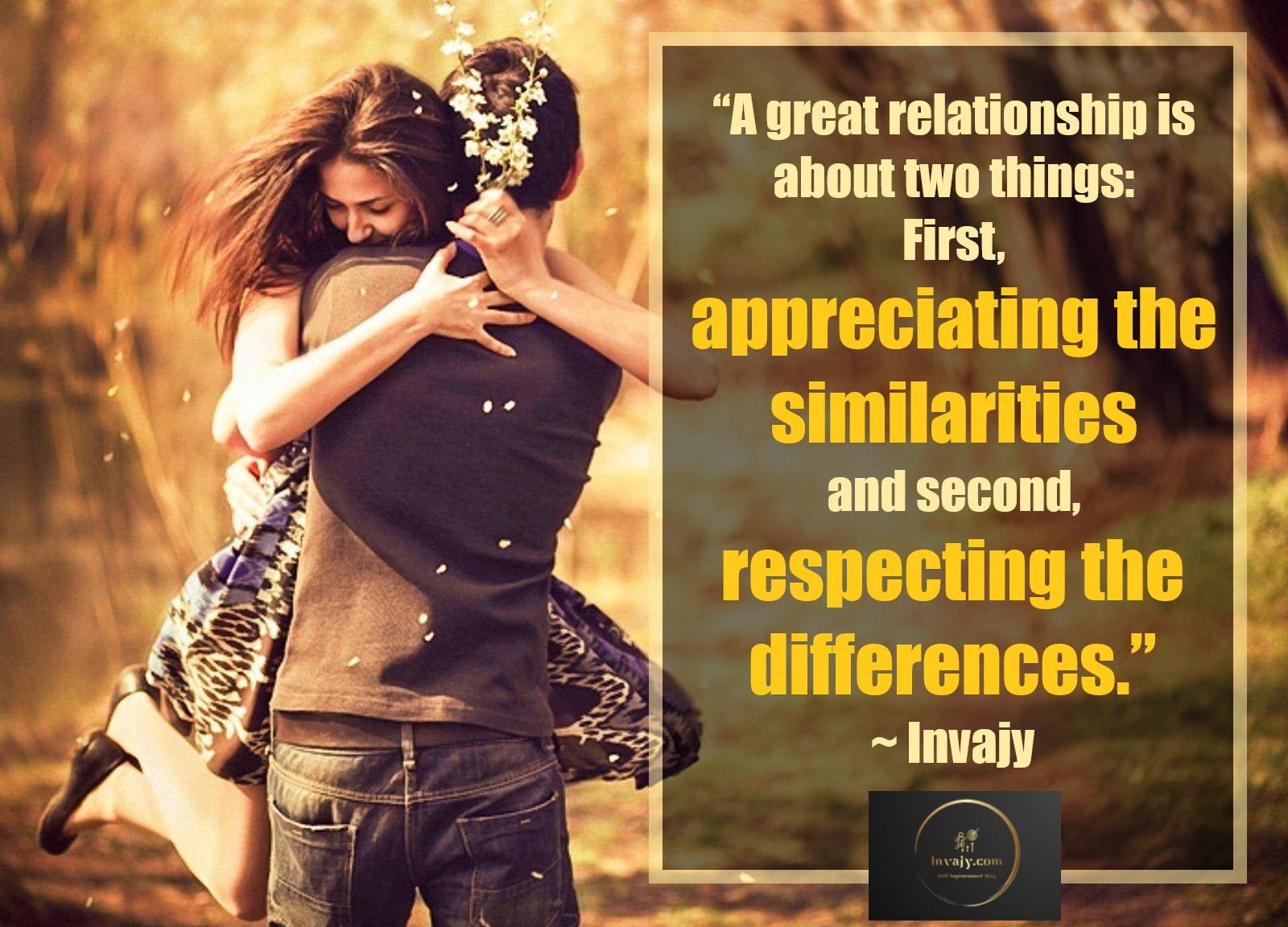In every healthy and lasting relationship, the concept of partnership plays a crucial role. But what does it really mean to be a true partner in a relationship? How is it different from just being in a relationship? Whether you’re starting a new relationship or have been in one for years, understanding the idea of true partnership can help build a more meaningful connection with your partner.
A true partner goes beyond the basics of love, affection, or even compatibility. It involves shared responsibility, emotional support, and a commitment to growing together through life’s ups and downs.

What Does It Mean to Be a True Partner in a Relationship?
The Difference Between a Relationship and a Partnership
While the words relationship and partnership are often used interchangeably, they’re not exactly the same. A relationship can exist between any two people who care for each other or share a romantic bond. But a partnership takes that connection to a deeper, more intentional level.
In a relationship, two people may focus on their individual needs, with love and care being the common link. But in a partnership, two people come together with the shared goal of building a life, tackling challenges, and evolving as a unit.
One of the most critical shifts in moving from a basic relationship to a true partnership is the movement from thinking in terms of “me” to “we.” This means that in decisions, actions, and daily life, both partners consider how choices affect the “we” instead of just the “me.” It’s about creating a balanced relationship where both people feel like equal contributors.
Qualities of a True Partner
To understand what makes someone a true partner, it’s essential to explore the qualities that define such a partnership. A true partner embodies several key traits that elevate the relationship:
- Mutual Respect:
A relationship cannot thrive without mutual respect. Respect means valuing your partner’s opinions, feelings, and boundaries. It’s about understanding their needs and desires, while also feeling confident that yours are equally acknowledged. Respecting your partner as an individual, while also valuing the relationship, is a foundation for success. - Trust and Honesty:
A true partner builds and maintains trust. Trust involves consistency in actions and words, being reliable, and avoiding betrayals—whether emotional or physical. Equally, honesty is about transparency, even in difficult situations. True partners are open and truthful, ensuring that there are no hidden agendas or deceit. - Emotional Support:
In any relationship, emotional ups and downs are inevitable. However, a true partner offers emotional support, helping each other navigate through life’s challenges. Whether it’s celebrating victories or providing comfort during tough times, a true partner is always present emotionally. They are not just there for the good times but offer strength when it’s most needed. - Shared Values and Goals:
Shared values are critical in maintaining alignment in a relationship. This doesn’t mean partners need to agree on everything, but the core values and life goals should be similar. Whether it’s about career aspirations, family planning, or lifestyle choices, having a common vision strengthens the partnership and ensures both are working toward the same future.
By fostering these qualities, a relationship transforms into a true partnership, where both individuals feel valued, understood, and supported.

Why Is a True Partnership Important in a Relationship?
Building a Strong Foundation
A true partnership creates a solid foundation for any relationship, one that can weather life’s many challenges. When both partners share responsibilities, values, and goals, it creates a sense of stability and security. This foundation is built on trust, communication, and mutual respect—cornerstones of a healthy, long-term partnership.
One of the biggest advantages of having this foundation is that it helps couples navigate tough times without the fear that the relationship will crumble. For instance, financial struggles, career changes, or family issues are easier to handle when both partners work together. When you know your partner is fully invested in the relationship and willing to share the burdens, there’s less stress and more confidence in overcoming obstacles.
A study by the Gottman Institute, which focuses on relationship dynamics, found that couples who view themselves as a team rather than individuals have a far higher success rate. According to their research, couples who communicate and approach challenges as partners were 80% more likely to stay together long-term.
The Impact on Emotional Intimacy
A true partnership significantly enhances emotional intimacy. When both partners feel secure, supported, and appreciated, they’re more likely to open up and share their true thoughts and feelings. This vulnerability fosters a deeper connection, as both partners feel seen and understood at their core.
Emotional intimacy isn’t just about sharing feelings; it’s about being emotionally available to each other, particularly during difficult times. A true partner understands your emotional needs and seeks to fulfill them, even when it’s not easy. This kind of emotional investment deepens the bond and makes the relationship more resilient.
Couples who cultivate emotional intimacy often find that they feel closer, more connected, and more satisfied in their relationship. This connection strengthens over time, leading to a happier and healthier relationship.
Supporting Each Other’s Growth
One of the most profound aspects of a true partnership is the encouragement of personal growth. Partners in a healthy relationship understand that they are both individuals with their own dreams, goals, and aspirations. A true partner does not feel threatened by their partner’s growth but instead encourages it.
For example, if one partner wants to pursue further education or change careers, a true partner will support this decision, even if it requires sacrifices, like relocating or taking on more household responsibilities. This type of mutual support helps each person grow individually, which ultimately strengthens the relationship.
A true partnership is about growing together, not apart. While both individuals pursue their own goals, they do so with the understanding that their growth will enhance the relationship, making it stronger and more dynamic.

How Can You Tell If You Have a True Partner in Your Relationship?
Signs of a True Partnership
Identifying a true partner can sometimes be challenging, especially if you’re unsure of what to look for. However, there are several clear signs that can help you recognize whether you’re in a relationship with someone who truly embodies partnership qualities.
- They Listen Actively and Validate Your Feelings
One of the most critical signs of a true partner is active listening. When your partner genuinely listens to what you have to say, they are not just hearing the words but are also trying to understand your perspective. They make you feel heard and validated, even if they don’t always agree with your point of view. This builds emotional security, showing that your thoughts and feelings matter. - They’re Willing to Compromise
Every relationship requires some level of compromise, and a true partner understands this. They don’t view decisions or disagreements as opportunities to “win” but as moments where you both need to find a solution together. Compromise is a key element of teamwork, and true partners are always willing to work together to find a balanced approach that works for both people. - They Support Your Goals and Dreams
A true partner is genuinely invested in your success and happiness. They not only support your goals but actively encourage you to pursue them. Whether it’s a new career venture, a personal hobby, or a life ambition, they are there to cheer you on, provide help when needed, and share in your excitement. - They Exhibit Emotional Maturity
Emotional maturity is a crucial trait in a true partner. This means they are capable of handling conflicts calmly, taking responsibility for their actions, and are willing to grow emotionally. They don’t react impulsively or let negative emotions control them, and they focus on resolving issues rather than escalating them. - Shared Responsibility
True partnerships share the load—whether it’s about finances, household chores, or making big life decisions. You’ll notice that both partners are equally invested in the relationship’s success, and the responsibility doesn’t fall solely on one person. This balance helps prevent resentment from building and promotes a sense of equality in the relationship.
Red Flags to Watch For
On the flip side, it’s important to recognize when someone may not be acting as a true partner. These red flags can indicate that your relationship might need work or, in some cases, a re-evaluation:
- Lack of Communication
If your partner frequently avoids discussing important issues or shuts down during conversations, it can be a sign that they are not fully engaged in the relationship. Poor communication can lead to unresolved problems, misunderstandings, and emotional distance, all of which are detrimental to a true partnership. - Selfishness or One-Sided Efforts
In a healthy partnership, both people contribute to the relationship. If you feel like you’re constantly giving more than you’re receiving, it might indicate that your partner is acting selfishly. A one-sided relationship can lead to exhaustion and resentment, which prevents a true partnership from forming. - Controlling Behavior
True partners respect each other’s individuality and autonomy. If your partner is controlling—whether it’s by trying to dictate your actions, emotions, or choices—it can be a sign of an unhealthy dynamic. Controlling behavior undermines mutual respect and equality, two essential components of a true partnership. - Unwillingness to Grow
Relationships require growth, both individually and as a couple. If your partner is unwilling to grow, learn from mistakes, or adapt to changes in the relationship, it can create a stagnant environment. A true partner is open to evolution, personally and as part of the team.

What Are the Key Characteristics of a True Partner in a Relationship?
Empathy and Understanding
One of the most crucial traits of a true partner is empathy. Empathy goes beyond simply listening to your partner’s words; it’s about deeply understanding their feelings, emotions, and perspectives. A true partner is able to put themselves in your shoes, offering compassion and support even when they may not fully agree with your point of view.
When a partner is empathetic, they make an active effort to understand your emotional state and validate your experiences. This doesn’t mean they always have the answers or solutions, but they create a safe space for you to express yourself openly without judgment. This understanding fosters emotional intimacy and strengthens the connection between both individuals.
Shared Responsibilities and Decision-Making
In a true partnership, there is no room for one-sided effort. Shared responsibilities are key to maintaining balance and harmony in the relationship. Whether it’s taking care of the household, managing finances, or making decisions about the future, both partners contribute equally. This creates a sense of teamwork where both people feel valued and appreciated for their efforts.
True partners make decisions together. Whether it’s a small decision like what to have for dinner or a major life decision such as relocating or starting a family, both individuals are involved in the process. They listen to each other’s opinions, weigh the pros and cons, and find solutions that work for both. Collaboration and mutual respect in decision-making prevent power imbalances and ensure both voices are heard.
Here’s a simple breakdown of shared responsibilities in a true partnership:
| Responsibility Area | Example | Partner 1 | Partner 2 |
|---|---|---|---|
| Financial Management | Budgeting, paying bills | ✓ | ✓ |
| Household Chores | Cleaning, cooking, errands | ✓ | ✓ |
| Childcare (if applicable) | School runs, parenting duties | ✓ | ✓ |
| Emotional Support | Providing care during tough times | ✓ | ✓ |
| Future Planning | Career changes, family decisions | ✓ | ✓ |
As you can see, a true partnership thrives when both partners invest time and effort equally, ensuring no one is left to shoulder all the responsibility.
Commitment and Dedication
Commitment is at the heart of a true partnership. A true partner is fully dedicated to the relationship, not just during the good times, but through the challenges as well. They are committed to the well-being of the relationship and are willing to put in the work to make it last.
Dedication doesn’t only manifest in grand gestures; it’s in the everyday acts of love and care. It’s shown through consistently showing up, being present, and offering support even when things aren’t easy. Whether it’s helping with daily tasks, making time for quality moments, or offering a listening ear when needed, commitment ensures that the relationship is prioritized, no matter what life throws at you.
Case Study:
A couple, Sarah and David, struggled early in their marriage due to conflicting work schedules and differing life priorities. However, through shared commitment and dedication, they made a conscious effort to realign their goals and work together. They developed a routine where they shared daily responsibilities and made time for each other, leading to stronger emotional intimacy and a true sense of partnership.
Maintaining Individuality While Being a Team
A common misconception about partnerships is that you need to lose your individuality to make the relationship work. However, in a true partnership, both partners understand the importance of maintaining their personal identity. A healthy relationship is one where you can grow as individuals, pursuing your personal passions and interests while still being part of a team.
For example, if one partner is passionate about a hobby or a career goal that the other doesn’t share, they encourage each other to pursue these interests. Maintaining individuality allows both partners to bring fresh perspectives and experiences into the relationship, enriching the bond. At the same time, they ensure that these individual pursuits never overshadow their joint commitment to the partnership.
It’s about finding a balance between “me” and “we.” The ability to support each other’s independence while growing together is a key element of a true partnership.